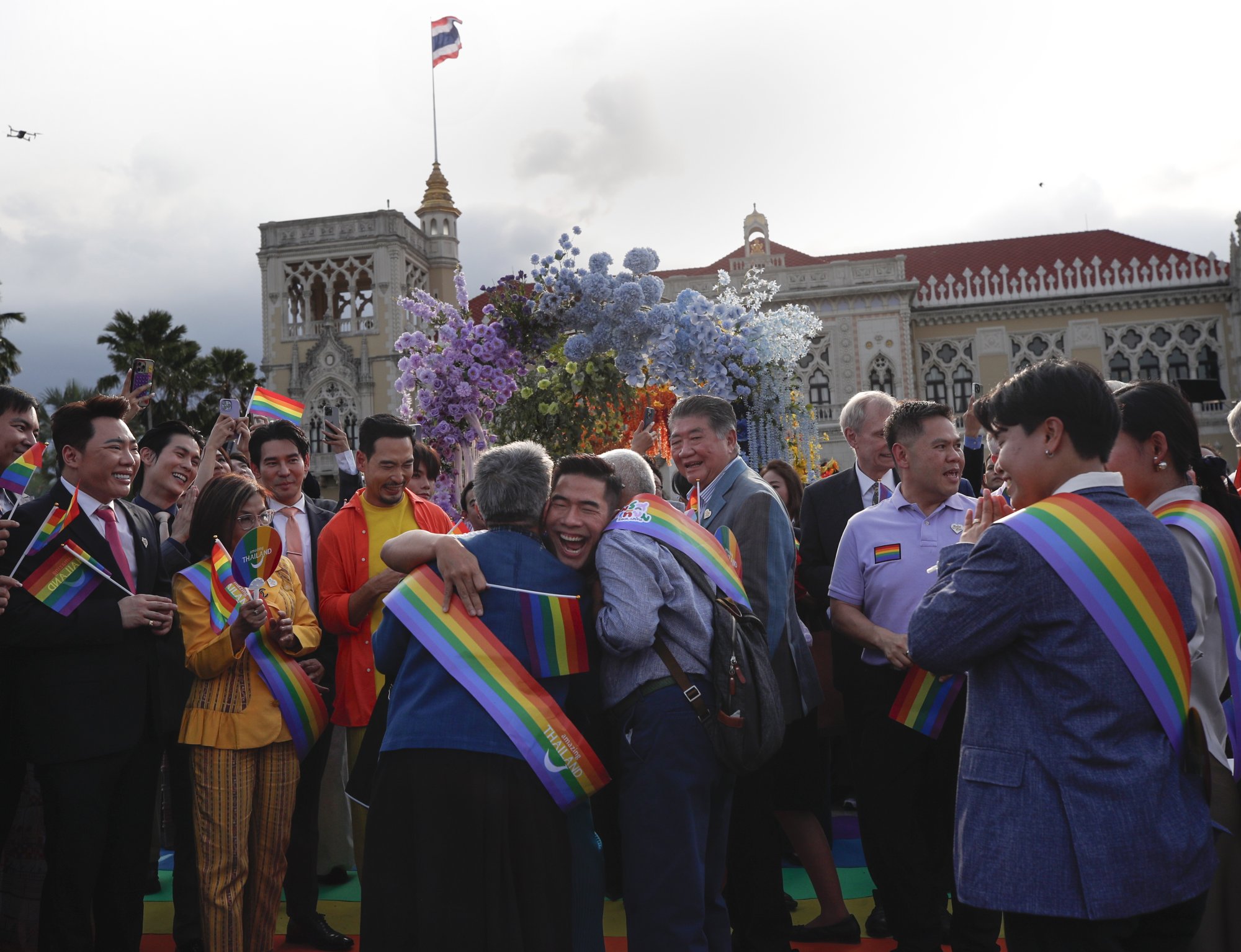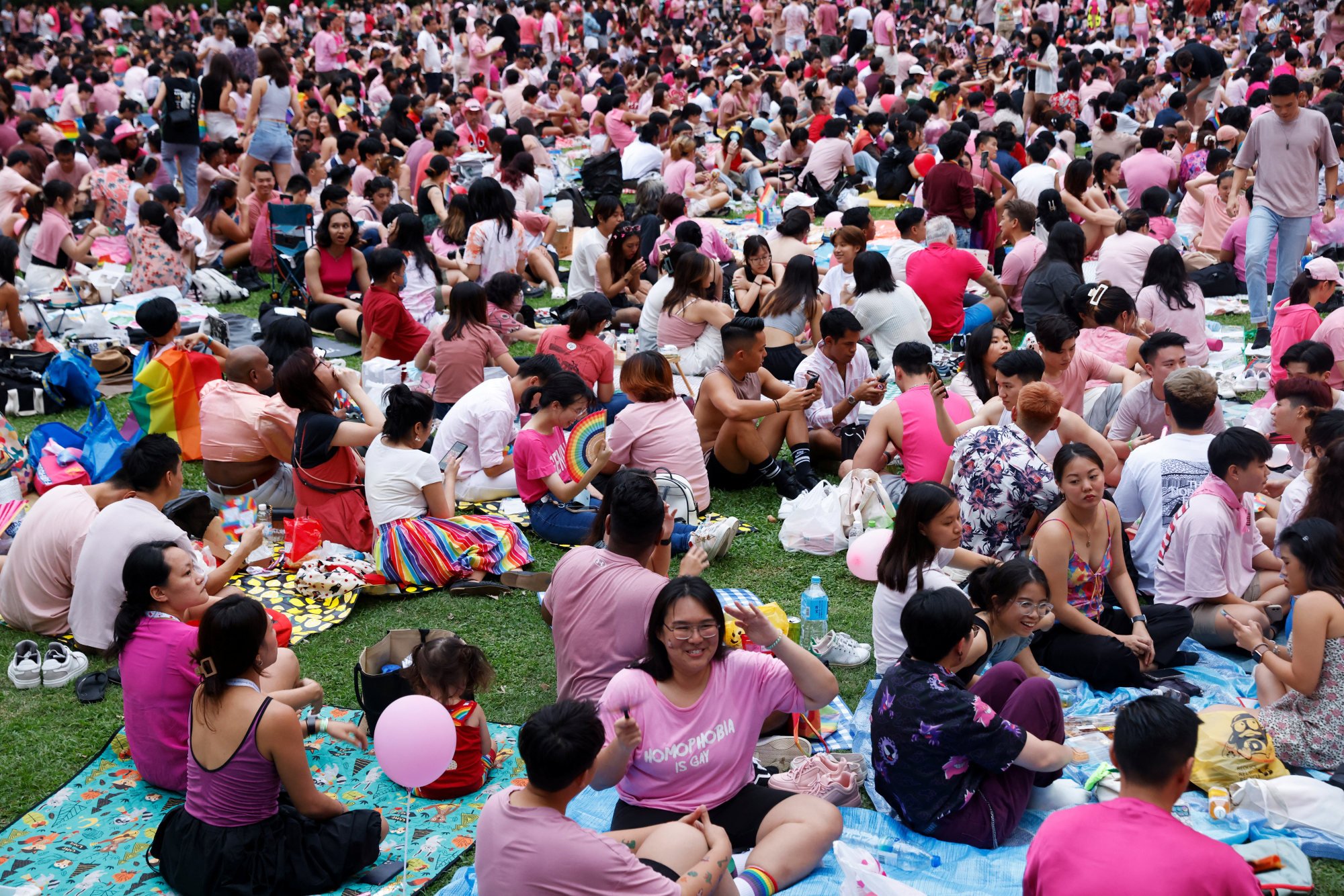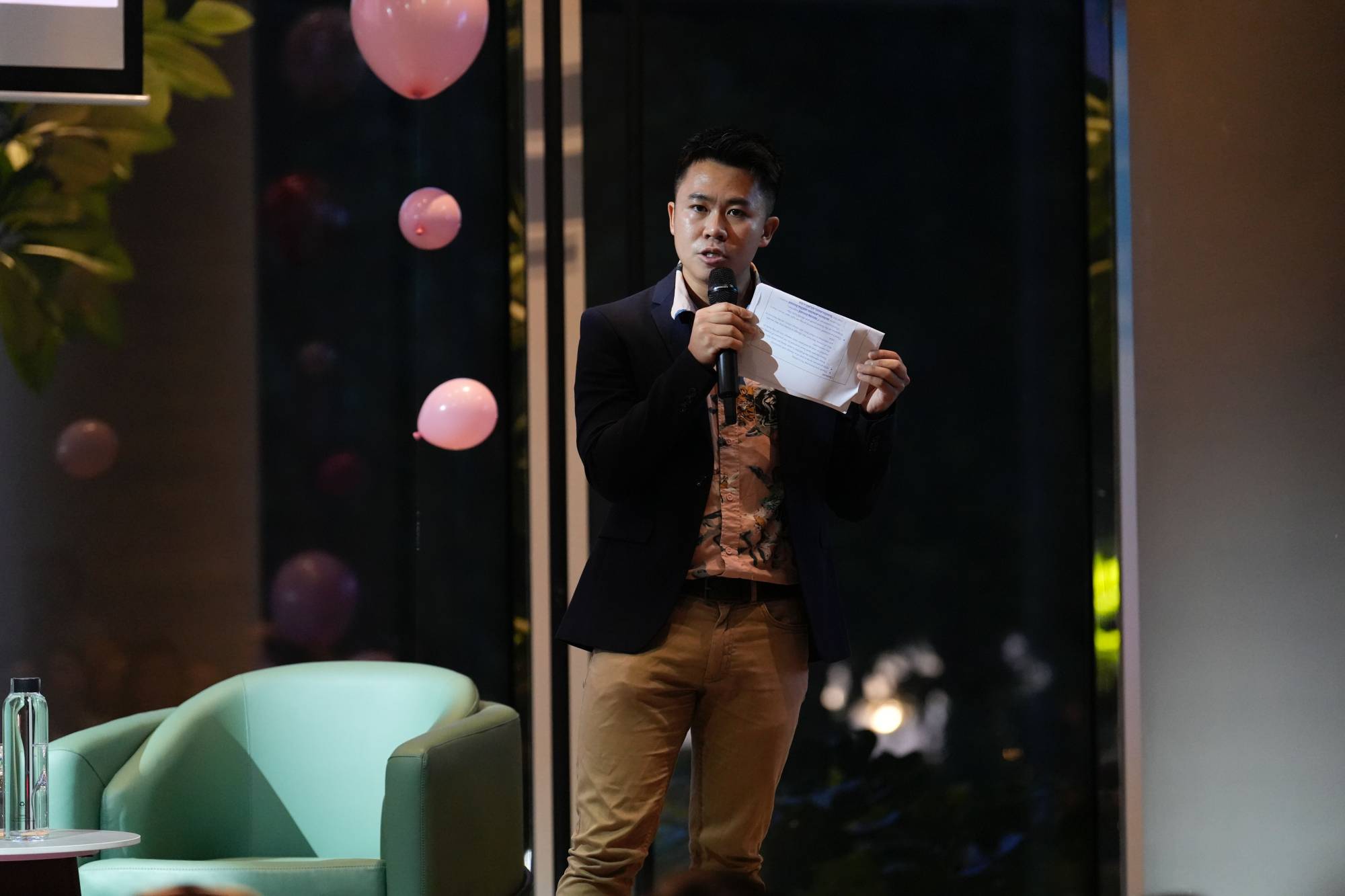He added: “I am hopeful that in the long term, at least it becomes a viable option for many lesbian and gay same-sex couples from Singapore.”

However, the couple – both declined to reveal their full names – will not be going to the US for their nuptials. Instead, they and 50 of their friends and family will gather in an industrial building in Tai Seng, Singapore, while the officiant in Utah marries them over a video call through a service called Courtly.
They will receive a US marriage certificate, but their marriage will not be recognised in Singapore and the couple will not enjoy the legal benefits of marriage in the city state.
“We don’t really care about the legality of it in countries like Singapore, but I think it’s really more of formalising our union and celebrating with close family and friends. I think that part is important,” Lau, a human resources director, told This Week In Asia on Thursday.
Ong, a business owner, and Lau will not be eligible for public flats, which close to four-fifths of Singapore residents live in. The couple have saved up enough to buy a condominium unit.

“Just because we’re at a disadvantage doesn’t mean we should succumb to what society tells us to do. For us, we are just excited to get married so we don’t see Singapore not recognising gay marriage as an obstacle, we see it more like how can we work around it?” Lau said.
Ong and Lau said they were pleased that Thailand could be an option as a venue for marriage registration but had planned for their big day when the news from Bangkok was announced.
Clement Tan, LGBTQ non-profit Pink Dot’s spokesman, said the community in Singapore was encouraged by the milestone achieved by Thailand but noted that couples who married overseas would still be treated as singles in Singapore.
“Marriage equality in Singapore is still a faraway goal, and many couples here do not consider this a possibility for themselves,” he said.

Tan shared some findings from a recent survey conducted by Pink Dot and research company Milieu Insight, which found that four in 10 LGBTQ Singaporeans who wanted to relocate cited getting married or forming a family as a key reason. The survey’s full findings will be released at the annual Pink Dot Pride rally on June 29.
In March this year, the Sapporo High Court in Japan ruled that the country’s ban on same-sex marriage was unconstitutional. A court in Hong Kong last October dismissed a government bid to deny same-sex married couples the right to rent and own public houses. In February 2023, a South Korean court ruled in favour of a same-sex couple seeking equal health benefits.
Tan said: “We acknowledge that there is a long road ahead of us, but we look forward to the day that Singapore can join the ranks of Thailand in a more inclusive and equal future.”

